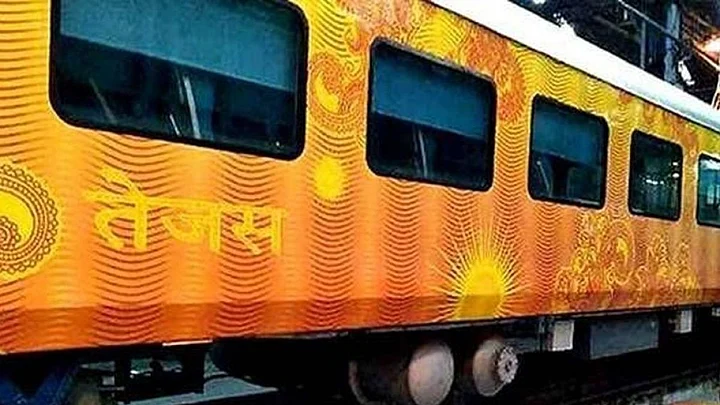Passengers of IRCTC's Delhi-Lucknow Tejas Express will be compensated in case of delays, the Railway subsidiary said on Tuesday, 1 October, announcing a first of its kind offer from any national carrier.
An amount of Rs 100 will be paid in case the delay is for over an hour and Rs 250 for delays of over two hours, the IRCTC said, ahead of the launch of its first train.
This latest offer is in addition to the Rs 25-lakh free insurance that will be given to passengers of the train.
This travel insurance also includes a coverage of Rs 1 lakh against household theft and robbery during travel period of the passengers, again a first for those travelling on board trains.
The train will be flagged off on 4 October.
Many countries over the globe compensate passengers for delays - some do so as monetary compensation and some in kind.
In countries like Japan and cities like Paris, a delay certificate is issued to passengers by railway companies as proof that a train arrived at a station later than stated in the company's scheduled timetable which can be shown in schools or offices for late admission at university exams.
The certificate is issued when delays as little as five minutes occur. In the UK, rail passengers are entitled to get automatic compensation for delayed journeys.
It is, however, not clear how IRCTC will calculate the compensation amount or disburse it. The train is scheduled to make its first commercial run on 5 October.
The new Tejas Express will run oin New Delhi-Lucknow route for six days a week.
The fare for Lucknow to New Delhi Tejas Express will be Rs 1,125 for AC chair car and Rs 2,310 for executive chair car.
The New Delhi to Lucknow Tejas Express ticket will be priced at Rs 1,280 for AC chair car passengers and Rs 2,450 for executive chair car. The train will operate on dynamic fare scheme.
Free tea and coffee will be offered through vending machines and water will be provided through RO machines for passengers on demand.
Just like in flights, meals will be served by on board service staff by trolleys.
A similar system is followed in Japan for their Shinkansen trains in which passengers travel without any onboard luggage which are picked up by service providers and left at the destination of their choice, enabling the travellers to travel hassle-free.
(At The Quint, we question everything. Play an active role in shaping our journalism by becoming a member today.)
